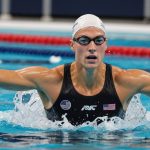As dedicated athletes, fitness enthusiasts, or just regular gym-goers, you’re aware of that familiar muscle soreness that follows an intense workout. This is a common symptom of exercise-induced muscle damage (EIMD), a natural result of physical exertion. Proper nutrition plays a significant role in promoting a faster post-training muscle recovery. Among the key elements of such nutrition are anti-inflammatory foods. This article explores the importance of these special foods in post-exercise muscle recovery, backed by resources from trusted platforms like Google Scholar and CrossRef.
Understanding Exercise-Induced Muscle Damage (EIMD)
Before diving into the impact of anti-inflammatory foods, it’s crucial to understand exercise-induced muscle damage (EIMD). When you engage in strenuous exercise, especially resistance training or endurance activities, your muscles experience microscopic damage. This damage is a necessary part of muscle growth and adaptation, leading to the ache and stiffness known as delayed-onset muscle soreness (DOMS).
Topic to read : How do antigravity treadmills impact muscle rehabilitation in athletes?
This damage triggers an inflammatory response within the body. Inflammation is the body’s natural way of repairing damaged tissues. However, excessive inflammation can slow down the healing process and impair your athletic performance. As such, managing inflammation is a crucial aspect of post-exercise recovery.
The Role of Anti-Inflammatory Foods in Muscle Recovery
The link between diet and inflammation is well-established in nutritional science. Certain foods have been shown to reduce inflammation and promote muscle recovery. These anti-inflammatory foods contain nutrients such as omega-3 fatty acids, antioxidants, and polyphenols, which have potent anti-inflammatory effects.
Also read : What are the effects of sandbag training on core stability and muscle endurance?
One of the primary roles these foods play is in reducing the inflammatory response to exercise. By doing so, these foods can help speed up muscle recovery and improve subsequent performance. Studies indexed on Google Scholar highlight the significant correlation between the intake of anti-inflammatory foods and faster recovery times in athletes.
Anti-inflammatory foods also play a role in reducing muscle pain post-exercise. For instance, tart cherries, rich in anti-inflammatory compounds called anthocyanins, have been shown to decrease muscle pain and loss of strength after intensive exercise.
Protein Supplementation and Muscle Recovery
While discussing post-exercise nutrition, it’s impossible to overlook the role of protein. Amino acids, the building blocks of proteins, are crucial for muscle repair and growth. A protein-rich meal or supplement post-workout provides the body with the necessary amino acids to rebuild damaged muscle fibres and stimulate the growth of new ones.
But protein isn’t just about muscle repair. Research data from CrossRef shows that protein also has anti-inflammatory effects. Consuming protein after exercise can help to moderate the inflammatory response, aiding in quicker recovery.
The Importance of Vitamins and Minerals
Just as protein, vitamins and minerals are essential components of a post-workout recovery diet. These micro-nutrients play various roles in reducing inflammation and promoting muscle recovery.
For example, Vitamin C is a powerful antioxidant that fights off oxidative stress, a contributor to inflammation. It also plays a role in collagen synthesis, a crucial process in muscle repair. Similarly, Vitamin D enhances the absorption of calcium and phosphorous, essential minerals for muscle function and bone health.
Minerals like calcium, magnesium, and zinc are also essential for muscle recovery. They aid in muscle contraction, protein synthesis, and energy production.
Incorporating Anti-Inflammatory Foods into Your Diet
To tap into the benefits of anti-inflammatory foods for muscle recovery, it’s important to incorporate them into your daily diet. Foods high in omega-3 fatty acids, such as fatty fish, chia seeds, and walnuts, are excellent choices. Fruits and vegetables, rich in antioxidants and vitamin C, are also essential.
Spice up your meals with turmeric and ginger, both known for their potent anti-inflammatory properties. Don’t forget to include protein-rich foods like lean meats, dairy, and legumes in your diet.
Remember, the best approach to post-exercise recovery involves a combination of proper rest, hydration, and balanced nutrition. Including anti-inflammatory foods in your diet can significantly enhance your recovery and performance over time.
While this article provides a comprehensive view of the role anti-inflammatory foods play in muscle recovery, it’s always a good idea to seek professional advice. A sports nutritionist can provide personalized recommendations based on your individual needs and fitness goals.
That being said, the next time you feel the burn after an intense workout, remember the power of nutrition in your recovery process and make sure you’re refuelling with the right foods. Your muscles will thank you for it.
The Influence of Hydration on Muscle Recovery
Hydration plays a critical role in muscle recovery and is another area where anti-inflammatory foods can be a significant asset. Water is fundamental to numerous bodily functions, from nutrient transportation to waste elimination. Dehydration can exacerbate muscle damage, increase inflammation, and delay recovery.
According to a study cited on Google Scholar, water-rich fruits and vegetables, such as watermelon and cucumber, can contribute significantly to post-exercise rehydration. These foods are not only rich in water but also contain important electrolytes such as potassium and magnesium, which can help to restore the body’s electrolyte balance post-exercise.
Moreover, there’s a developing body of evidence, from resources on CrossRef and PubMed, suggesting that green tea and tart cherry juice have both rehydration and anti-inflammatory benefits. Green tea is rich in a type of polyphenol called catechins, which has been shown to reduce muscle damage and inflammation. Tart cherry juice, meanwhile, is high in antioxidants and has been linked to reduced muscle soreness after intense workouts.
Balancing Rest and Exercise for Optimal Recovery
Rest is just as important as nutrition in the post-exercise recovery process. During sleep, the body undergoes numerous recovery processes, such as the secretion of growth hormones, which aid in muscle repair and growth. As noted in a systematic review on CrossRef, inadequate sleep can slow muscle recovery, increase muscle soreness, and impair subsequent performance.
Interestingly, certain foods can improve sleep quality by modulating the body’s sleep-wake cycle. For instance, cherries are a natural source of melatonin, a hormone that regulates sleep. A study on Google Scholar found that participants who consumed tart cherry juice reported improved sleep quality.
Conclusion: The Integrated Approach to Post-Exercise Recovery
In conclusion, the role of anti-inflammatory foods in post-exercise muscle recovery extends beyond simply reducing inflammation. From providing necessary nutrients for muscle repair and growth to aiding in rehydration and sleep, these foods are crucial to an integrated approach to post-exercise recovery.
However, as every individual’s needs and responses can differ, it’s recommended to consult with a sports nutritionist for personalized advice. They can design a tailored diet plan, considering factors such as your fitness goals, training intensity, and lifestyle.
Ultimately, your post-exercise recovery strategy should encompass a balanced diet rich in anti-inflammatory foods, adequate hydration, and proper rest. By doing so, you can minimize exercise-induced muscle damage, accelerate muscle recovery, and maximize your athletic performance. This integrated approach emphasizes not just the quantity, but the quality of your training, ensuring sustainable progress towards your fitness goals. The next time you plan your post-workout meal, remember to include anti-inflammatory foods to give your muscles the best chance at a swift and effective recovery.











